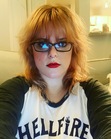Learning to Stop Selling Myself Short
I think most of us have experienced Imposter Syndrome at one time or another. I’m sure some of us deal with it on a consistent basis, especially when there are so many voices telling us how we should go about accomplishing our goals. Holding onto our confidence in ourselves can be one of the hardest things we do as human beings who love to create, particularly when we decide to go against the “professional” knowledge of our industry to give ourselves the best chances at really getting our work out there.
I am a writer of the three main genres: poetry, fiction, and nonfiction. And while there isn’t any rule that says I have to choose just one genre and stick with it, there is a kind of unspoken/whispered guideline that, unless you’re going to write literary fiction, poets should keep their prose to nonfiction. This is because it can be jarring for the audience of a poet, say, to suddenly see them writing and releasing fiction that is very immersed in a fiction genre like sci-fi or romance.
I am not a literary fiction writer. Never have been. I write a lot of fantasy and, most recently, a ton of horror. It’s what I love to write within the fiction genre. And while I’m not necessarily excluded from being both a poet and a genre fiction writer, there is a very loud voice in the back of my mind telling me that I have to choose. Do I want to be a poet or a horror writer? And I resent the implication that I have to choose at all.
However, I also recognize that there is some truth to this implication. It’s one thing for those who write only fiction to dabble in multiple genres and subgenres, especially when a lot of genres overlap already. Sci-fi and fantasy, fantasy and horror, horror and comedy, etc. It’s not uncommon for a book of genre fiction to fit into multiple sub-categories. I think of writers like Neil Gaiman who write across many different sub-genres of fiction, and do so successfully.
However, when I think of prominent poets and the genres they write in, it’s almost universal that if they write fiction, it’s literary fiction. And, much like poetry, literary fiction is not a field that pays well. In my M.F.A., our director said that pretty much only poets read poetry. I think the same is true for writers of literary fiction. And as someone who is branching into poetry with my debut book coming out this year, I’ve found myself wondering what I should do in regards to my fiction.
Over the course of the weekend, I came to a decision regarding my fiction and how I might go about releasing it into the world, and it comes down to giving myself the chance. Self-publishing has become a huge industry that provides a much higher rate of royalties than traditional publishing. Most authors who are published traditionally do not go on to make a lot of money on their books, unless they’re lucky enough to be picked up by one of the top four publishers. And the likelihood of that is extremely slim. Whereas self-published writers, depending on the frequency of their publishing and their dedication to the publicity and advertising side of things, can eventually make between $3,000 and $10,000 per month. This is, of course, dependent on continuous writing and releasing of new material.
Therefore, I’ve decided this will be the next step in my own publishing journey. I don’t know that I will ever make enough to be a full time writer, but it can’t hurt to try, and if it allows me to get my fiction out there, then why not take a shot? It could take me a year or several to build up an actual monthly income from my writing, but even if I’m only making a couple hundred bucks a month, it will be a dream come true. And those self-published writers who set and stick to deadlines and really learn the industry of self-publishing tend to do much better than that.
I’m going to give myself this chance.



